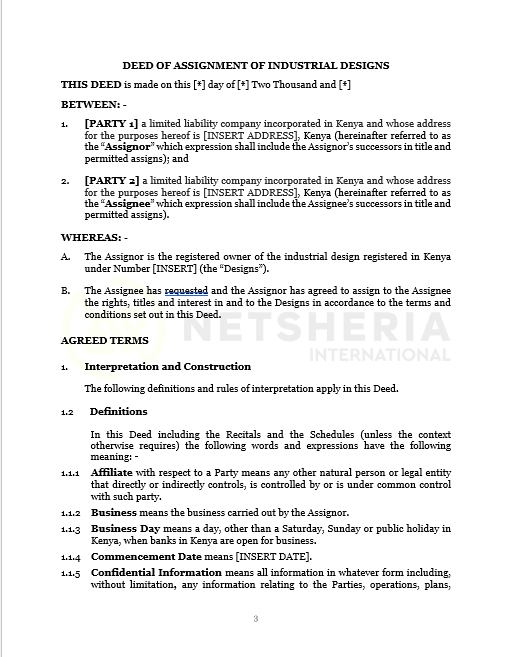The deed must be signed by both parties and often requires notarization to affirm its validity. It serves as an official record that the assignee is now the rightful owner of the IP and is entitled to use, sell, or license it as they see fit. This deed is crucial in business transactions involving IP, such as mergers, acquisitions, or when a company wishes to consolidate its IP assets into a separate legal entity. It provides legal certainty and clarity, ensuring that the IP can be utilized without dispute over ownership, thus fostering innovation and commercial exploitation of creative works. The pro-assignee nature of the document underscores the assignee’s advantageous position, often including warranties that the IP does not infringe on third-party rights and detailing any payment made for the transfer. This deed is an essential tool for businesses and individuals seeking to secure their intellectual assets in the dynamic landscape of IP rights.
Deed of Assignment of Intellectual Property Rights (pro-assignee)
KShs 5,600
A Deed of Assignment of Intellectual Property Rights (Pro-Assignee) is a pivotal legal instrument that facilitates the transfer of rights, title, and interest in intellectual property (IP) from the original owner (assignor) to a new owner (assignee). This document is particularly structured to favor the assignee, ensuring that the assignee receives full and exclusive rights to the IP. It typically includes the names and addresses of both parties, a comprehensive description of the IP being transferred, and a clear statement confirming the transfer of all associated rights.


